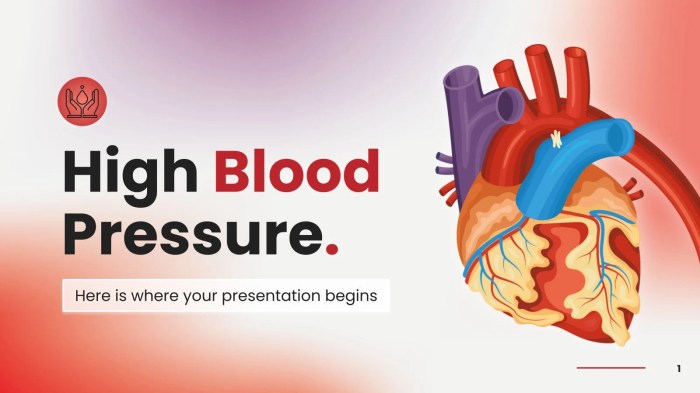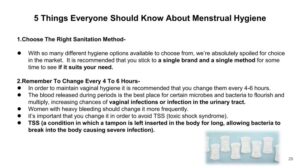
Hypertension treatment is a vital aspect of maintaining overall health, as it directly influences the risk of serious cardiovascular issues. Understanding how to manage high blood pressure effectively can empower individuals to take charge of their health.
This guide delves into the primary goals of hypertension treatment, the medications available for managing this condition, and essential lifestyle changes that can significantly lower blood pressure, providing a well-rounded approach to tackling hypertension.
Hypertension Treatment Overview
Hypertension, or high blood pressure, is a chronic condition that can lead to serious health problems if not effectively managed. The treatment of hypertension aims to lower blood pressure to safe levels, thereby reducing the risk of complications such as heart disease, stroke, and kidney failure. The approach to treatment typically involves a combination of medications and lifestyle changes tailored to individual needs.The primary goals of hypertension treatment include lowering blood pressure to target levels, maintaining those levels consistently, and minimizing the risk of cardiovascular events.
Effective management often necessitates regular monitoring and adjustments to treatment plans based on individual response to therapies.
Common Medications in Hypertension Management
Medication plays a crucial role in managing hypertension, especially for individuals who cannot achieve target blood pressure through lifestyle modifications alone. Several classes of medications are commonly prescribed:
- Diuretics: Often referred to as “water pills,” these help the body eliminate excess sodium and water, reducing blood volume and lowering blood pressure.
- ACE Inhibitors: Angiotensin-converting enzyme (ACE) inhibitors prevent the formation of a hormone that narrows blood vessels, promoting relaxation and lower blood pressure.
- ARBs: Angiotensin II receptor blockers (ARBs) serve a similar purpose as ACE inhibitors but do so by blocking the receptors rather than inhibiting the enzyme.
- Calcium Channel Blockers: These medications relax blood vessels by blocking calcium from entering the cells of the heart and blood vessel walls.
- Beta-Blockers: Primarily used to lower heart rate and reduce the force of contraction of the heart muscle, thereby lowering blood pressure.
It’s essential for patients to work closely with healthcare providers to determine the most suitable medications based on their health profile, potential side effects, and any other underlying conditions.
Lifestyle Changes to Lower Blood Pressure
Implementing lifestyle changes is a foundational aspect of hypertension management. Even when medications are prescribed, these changes can significantly enhance treatment effectiveness and overall cardiovascular health.Key lifestyle modifications include:
- Healthy Diet: Adopting a balanced diet rich in fruits, vegetables, whole grains, and low-fat dairy products can have a profound impact on blood pressure. The DASH (Dietary Approaches to Stop Hypertension) diet is particularly effective.
- Regular Physical Activity: Engaging in regular aerobic exercise, such as walking, jogging, swimming, or cycling for at least 150 minutes a week can help lower blood pressure.
- Weight Management: Maintaining a healthy weight is critical; even a modest weight loss can lead to significant decreases in blood pressure.
- Limiting Alcohol Consumption: Reducing alcohol intake to moderate levels can improve blood pressure control.
- Stress Management: Implementing stress-reducing techniques such as mindfulness, meditation, or yoga can help lower blood pressure.
- Smoking Cessation: Quitting smoking is vital for overall health and can significantly lower cardiovascular risks.
Each of these lifestyle changes not only supports blood pressure management but also contributes to overall well-being, reducing the risk of other chronic diseases. Emphasizing these changes can empower individuals to take charge of their health and make lasting improvements.
Alternative Treatments for Hypertension

In the quest to manage hypertension, many individuals explore alternative treatments alongside traditional medication. These alternatives can offer additional benefits and may aid in lowering blood pressure, improving overall well-being. Below, we delve into different approaches, including herbal remedies, relaxation techniques, and acupuncture.
Herbal Remedies and Their Effects on Blood Pressure
Herbal remedies have gained popularity for their potential to support blood pressure management. Some of the most common herbs used include:
- Garlic: Known for its ability to enhance nitric oxide levels, garlic can help relax blood vessels and improve circulation, leading to lower blood pressure.
- Hibiscus: This flowering plant has been shown in studies to reduce systolic and diastolic blood pressure, thanks to its rich antioxidant content and ability to inhibit ACE (angiotensin-converting enzyme).
- Omega-3 Fatty Acids: Found in fish oil, these fatty acids may reduce blood pressure by promoting heart health and decreasing inflammation.
- Beetroot: High in nitrates, beetroot can enhance blood flow and lower blood pressure, making it a beneficial addition to the diet.
“Incorporating these herbs into your daily routine may provide a natural support system for your blood pressure management.”
Relaxation Techniques for Stress Management
Stress management is crucial for hypertensive patients, as stress can significantly impact blood pressure levels. Various relaxation techniques can help alleviate stress, promoting a calming effect on the cardiovascular system. Some effective methods include:
- Meditation: Practicing mindfulness meditation can lower stress hormones and induce a state of relaxation, thus helping in blood pressure reduction.
- Deep Breathing Exercises: Simple breathing techniques, such as the 4-7-8 method, can help calm the nervous system and reduce blood pressure levels.
- Progressive Muscle Relaxation: This technique involves tensing and relaxing different muscle groups, which can help reduce physical tension and promote mental calmness.
- Yoga: Engaging in regular yoga practice has been shown to lower blood pressure by fostering relaxation and improving flexibility and strength.
“Implementing these relaxation techniques can enhance your overall sense of well-being while managing hypertension.”
Acupuncture and Its Role in Treating Hypertension
Acupuncture, a traditional Chinese medicine practice, involves inserting thin needles into specific points on the body to balance energy flow and promote healing. This method has been studied for its effects on hypertension.Research indicates that acupuncture may help lower blood pressure by:
- Stimulating the Nervous System: Acupuncture can help regulate the autonomic nervous system, potentially leading to lower blood pressure levels.
- Enhancing Blood Circulation: Improved circulation can alleviate pressure on blood vessels, contributing to overall cardiovascular health.
- Reducing Stress and Anxiety: By promoting relaxation, acupuncture can address one of the contributing factors to hypertension.
“Acupuncture may serve as a complementary therapy for managing hypertension, enhancing the effects of conventional treatments.”
Related Health Areas Impacting Hypertension

Understanding the various health areas that impact hypertension is crucial for effective management. Nutrition, mental health, and physical fitness are three interconnected components that play significant roles in regulating blood pressure levels. Addressing these areas holistically can enhance treatment outcomes and improve overall health.
Nutrition and Hypertension Management
Proper nutrition is fundamental in managing hypertension. A balanced diet can help lower blood pressure and reduce the risk of heart disease. Key dietary components include:
- Fruits and Vegetables: High in potassium, which helps balance sodium levels and eases tension in blood vessel walls.
- Whole Grains: Foods such as oats and brown rice are rich in fiber, which aids in maintaining a healthy weight and lowering blood pressure.
- Low-Fat Dairy: Sources of calcium, like yogurt and skim milk, contribute to healthy blood pressure regulation.
- Lean Proteins: Including chicken, fish, and legumes can improve heart health without the high saturated fats found in red meats.
Additionally, reducing sodium intake is essential, as excess salt can cause the body to retain fluid, leading to increased blood pressure. The DASH (Dietary Approaches to Stop Hypertension) diet is often recommended to those with hypertension, emphasizing the consumption of nutrient-dense foods and limiting processed items high in sodium and sugar.
Mental Health Conditions and Blood Pressure Levels
Mental health conditions, such as anxiety and depression, can significantly impact blood pressure. Stress triggers the release of hormones like adrenaline, which can cause temporary spikes in blood pressure. Chronic stress is associated with long-term hypertension due to its effects on the body.
“Managing mental health is as vital as managing physical health when it comes to hypertension.”
The interplay between mental health and hypertension can be profound. Studies have shown that individuals with anxiety disorders may experience higher blood pressure readings, and untreated depression can lead to poor adherence to hypertension treatments. Incorporating stress management techniques, such as mindfulness practices, therapy, and relaxation exercises, is crucial in a comprehensive hypertension management plan.
Importance of Fitness and Exercise in Regulating Hypertension
Regular physical activity is a cornerstone in the management of hypertension. Engaging in consistent exercise can lead to significant improvements in heart health and blood pressure levels. The following benefits highlight the importance of exercise in hypertension management:
- Weight Management: Maintaining a healthy weight reduces the strain on the heart and helps manage blood pressure.
- Improved Blood Circulation: Exercise enhances blood flow and improves the efficiency of the cardiovascular system.
- Stress Reduction: Physical activity releases endorphins, which can alleviate stress and anxiety, thereby positively affecting blood pressure.
- Enhanced Overall Health: Regular exercise can lower the risk of other conditions that can contribute to hypertension, such as diabetes and high cholesterol.
Health organizations recommend at least 150 minutes of moderate-intensity aerobic exercise each week. Activities like brisk walking, swimming, and cycling can effectively manage blood pressure levels and improve overall health.
End of Discussion
In summary, managing hypertension requires a multifaceted strategy that includes medication, lifestyle modifications, and alternative therapies. By embracing a proactive approach, individuals can not only control their blood pressure but also enhance their overall well-being, paving the way for a healthier future.
FAQ Explained
What lifestyle changes can help lower blood pressure?
Incorporating regular exercise, maintaining a healthy diet, reducing sodium intake, managing stress, and avoiding tobacco and excessive alcohol can effectively lower blood pressure.
Are there any severe side effects of hypertension medications?
Some medications can have side effects, including dizziness, headaches, or gastrointestinal issues. It’s crucial to discuss any concerns with a healthcare provider.
Can stress management techniques really impact hypertension?
Yes, techniques such as meditation, yoga, and deep-breathing exercises can help reduce stress and lower blood pressure levels over time.
How often should blood pressure be checked?
Individuals with hypertension should check their blood pressure regularly, at least once a day, while those without it should have their blood pressure checked at least annually during routine medical visits.
Are herbal remedies effective for treating hypertension?
Some herbal remedies, such as garlic and hibiscus, may have a positive effect on blood pressure, but they should be used in conjunction with proven treatments and under the guidance of a healthcare professional.





